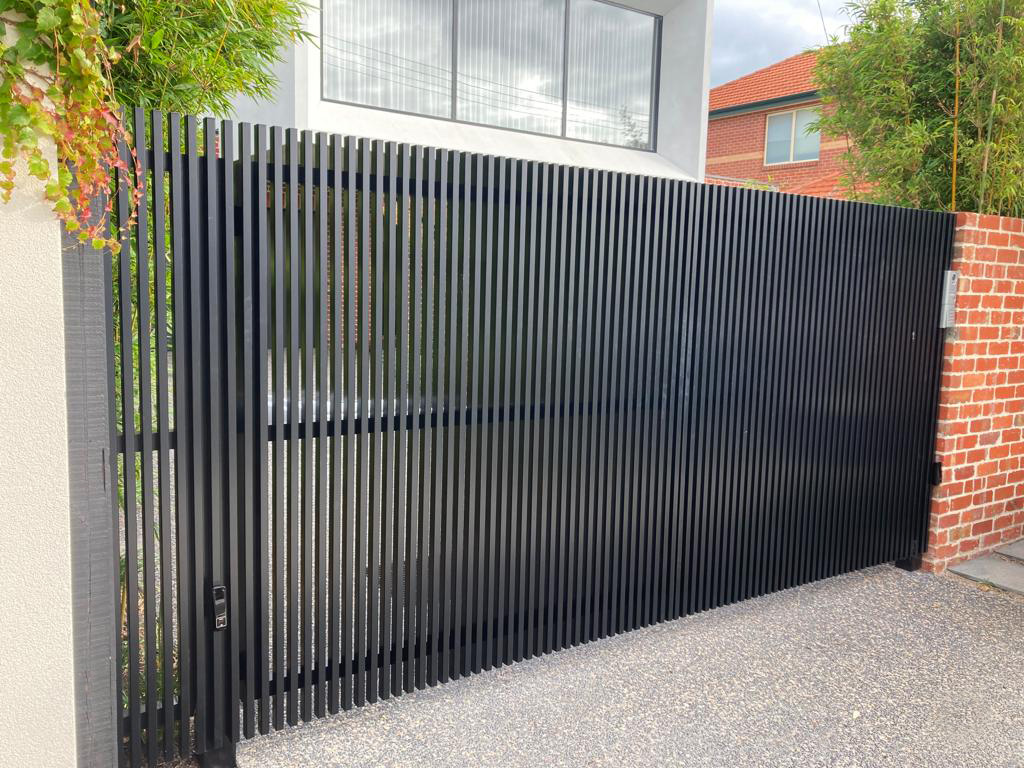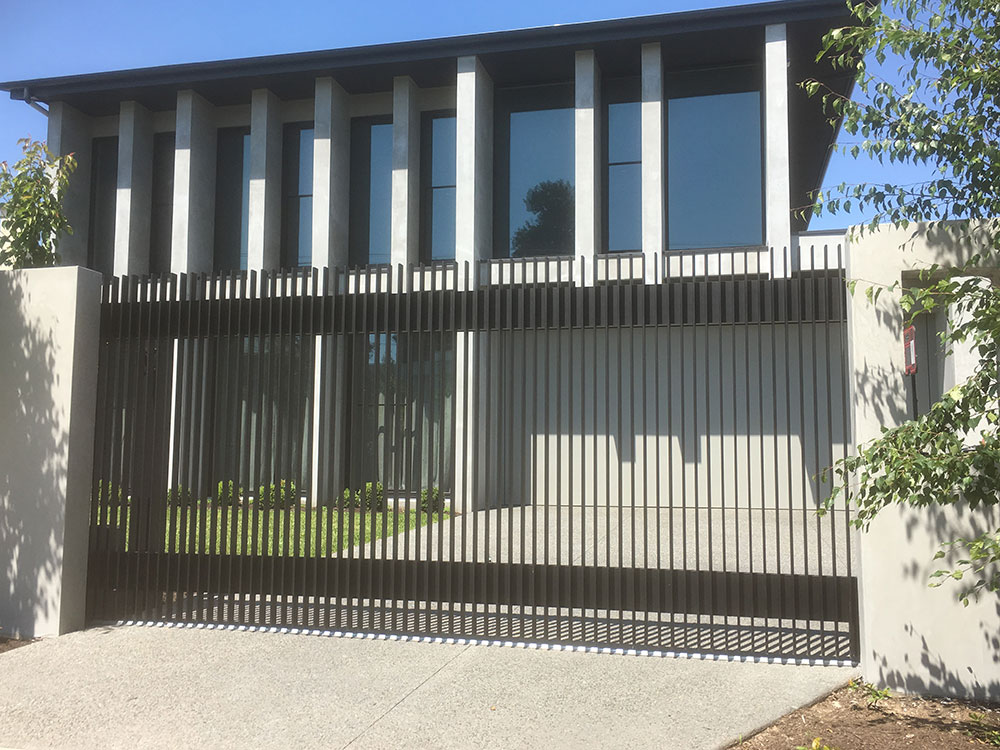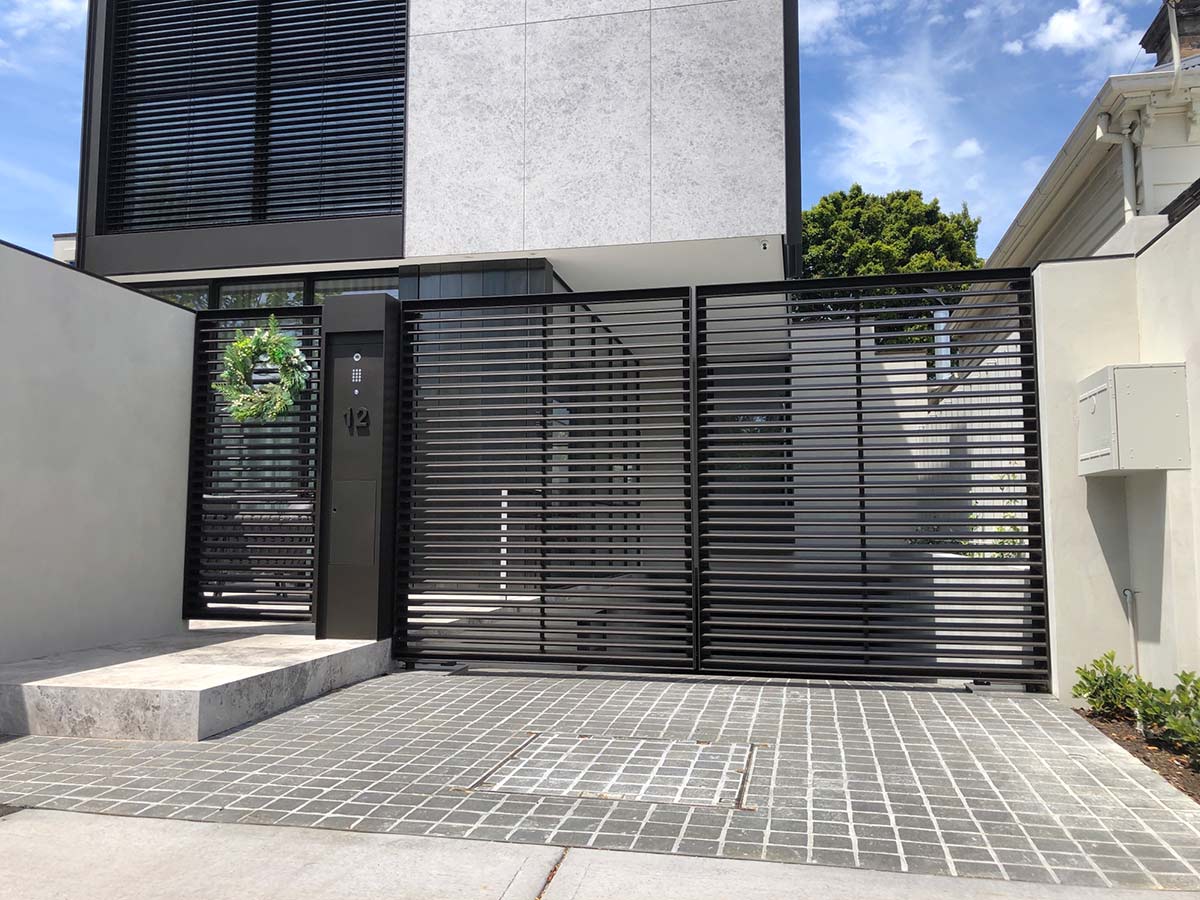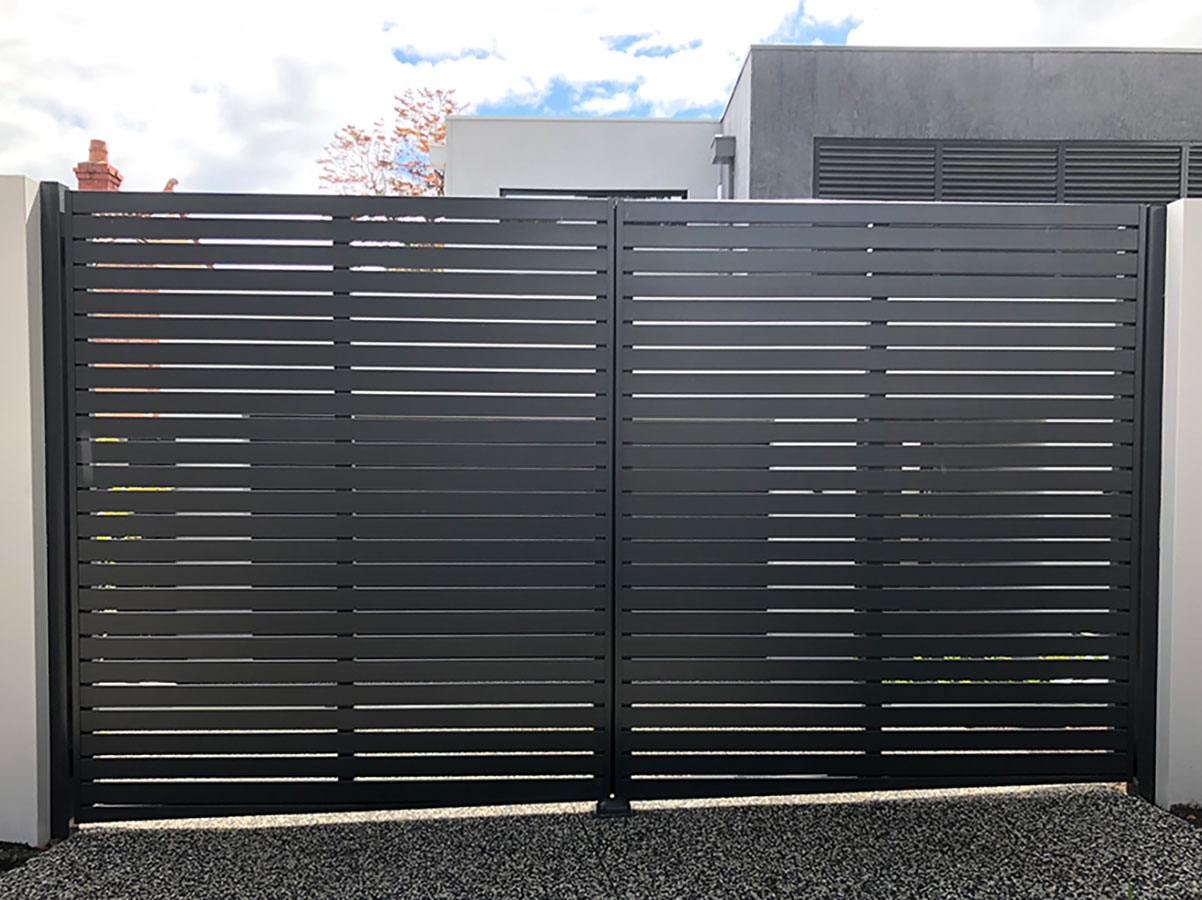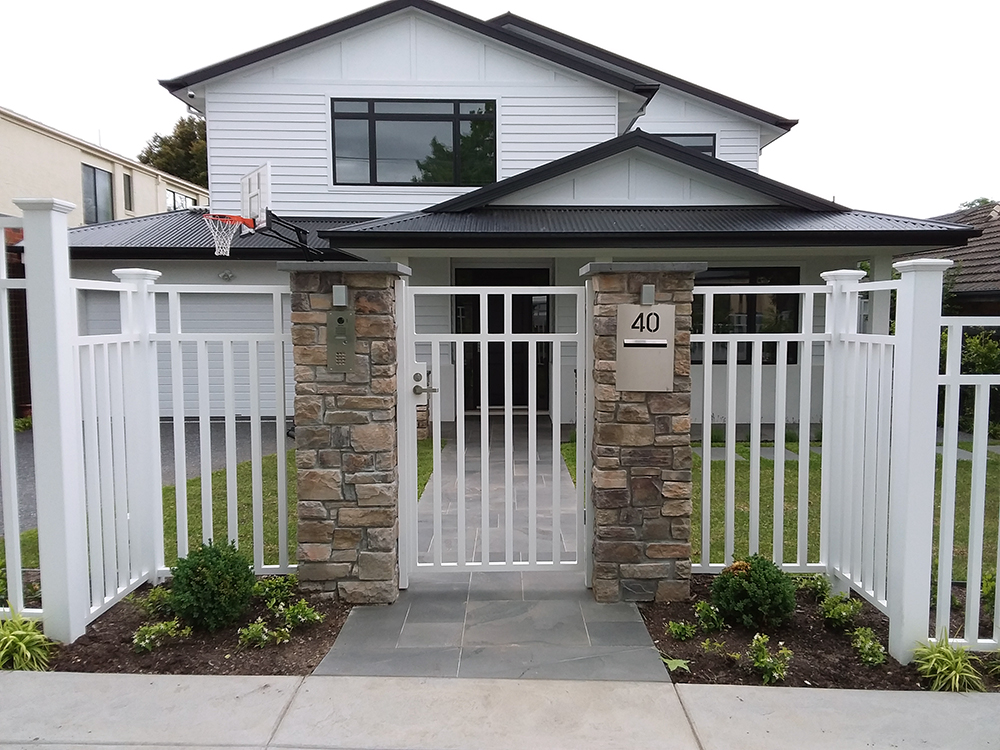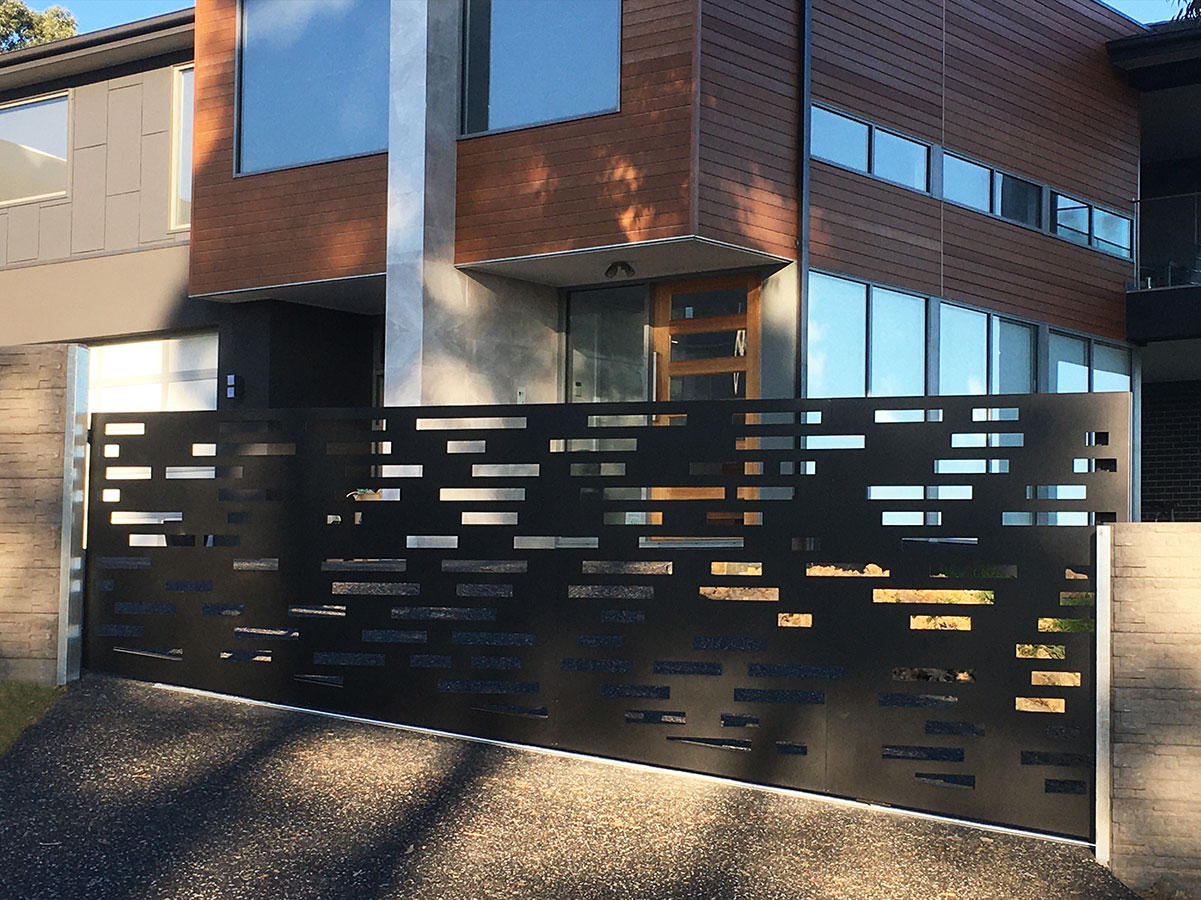


Aluminium Gate Designs
Melbourne
Create a statement and add value to your property with an elegant, custom-made aluminium gate, fence or screen from Gatepower. Crafted in Melbourne using only the best materials available, our aluminium designs are made for security, privacy, style and longevity. With powder coated finishes available in hundred’s of colours, you can create a modern twist on a classic design that requires minimal maintenance yet looks stunning all year round!
Aluminium - The modern preferred material for gates, fences and screening
Gates, fences and screens come in a range of different materials. While wood was once a popular choice, it’s always had its limitations. Prone to rotting and gaining weight when wet, placing extra strain on the fittings, wooden gates need regular maintenance to keep them looking good, and usually adjustments due to constant movement with caried weather conditions.
Both steel and iron have been widely used in the past to construct gates, with aluminium a relatively new arrival. What’s the difference between the different types of metal gates and how do they compare?
Weight
One of the key factors when it comes to choosing gates is their weight. This is a key consideration if you intend to automate your gates, this will play a role in selecting the appropriate automation system. More weight means more wear and tear on nearly all of the components. A motor that has to move a heavy gate will need to work much harder than one connected to a more lightweight option.
Weight is also a factor when it comes to the installation, in particular for hard to get places (ie.. elevated screens). The heavier the gate is, the harder it is to install, and the more of a safety risk it becomes (see below)
Both steel and iron gates are heavy. Aluminium, however, combines strength with relative lightness. They are easier to open and close, require less motor force and cause less wear and tear on the component parts. The moving parts used on aluminium gates are likely to last longer than those used in conjunction with steel and iron.
Safety
Closely connected to the weight issue is safety. Although all automated gates should be designed with safety as a consideration, the extra weight of steel and iron gates creates a larger safety risk. If your guide system/fasteners fail, the weight of steel and iron gates hitting a person or an object is considerably more dangerous than aluminium gates. Less force is required to move aluminium gates, so there is less force acting on the gates. Overall, aluminium gates are safer than heavier alternatives, during the installation and long after installation.
Repair
If your gates are damaged, generally steel is the easiest to repair if welding is required (one of the reasons steel is popular in busy commercial environments). Steel can generally be repaired on site. Aluminium weld repairs are not easily done on site. Usually the gate will need to be taken away for repairs.
Rust / Corrosion
Rust is something that you need to consider with gates and fencing, in particular near the coast. Both iron and steel gates are likely to develop rust issues over time when they come into contact with oxygen and water. To repair the issue you need to clean off all loose rust and paint, and treat them with rust inhibitors and primer before repainting. Even then, some people refer to rust as cancer, once it starts, it is very hard to eliminate. Left untreated, the problem will get worse over time.
Aluminium gates don’t rust. Although aluminium can corrode, the oxide coating that can occur if exposed to the elements is highly resistant, and actually renews itself if damaged keeping the metal relatively safe from further corrosion. As well as making aluminium gates look attractive, the powdercoating they’re given also helps to protect them from corrosion. This means that not only are they protected, they will look good for years to come.
Powdercoating
Powdercoating can be applied to Aluminium, Duragal and Hot-Dip Galvanised gates. Aluminium is the far superior product when it comes to powdercoated finishes. Aluminium is mill finished, so a flawless material. Steel has welded seams that are visible to the naked eye, and amplifies with certain colours/finishes (in particular satin and gloss finishes). Aluminium receives an acid treatment before powdercoating and it has the best powdercoat adhesion by far.
Duragal requires a rough up by either whip blasting or a rough orbital sand. The adhesion is quite good if prepared properly.
Hot dip galvanised metal and powdercoating. Although it can be done by preparing the frame the same as Duragal. We also pre-bake the gate in the oven to release any gases. Our general recommendation with hot dip gal is, don’t powdercoat it, leave the finish as is. The powdercoat will not last anywhere near as long as duragal or Aluminium, especially near coastal environments. Hot dip galvanising left as hot dip galvanising, performs well.
Durability
Both steel and iron are long-lasting and durable as a choice for gates. If they’re well maintained they will last considerably longer than wooden gates. For this reason, many people will opt for iron or steel gates believing them to be unrivalled when it comes to durability. This isn’t the case. Contemporary aluminium gates are just as durable as gates made from iron or steel. They require very little in the way of maintenance, and an occasional wipe down with a damp cloth to remove surface dirt should keep the powdercoat finish looking as good as new for a long time.
Appearance
Steel gates are generally the preferred approach for commercial/security type settings. Though can also be used as decorative. In certain applications, steel is still the preferred approach.
Aluminium gates are made from aluminium extrusions which are both strong and light. A tough protective powdercoat surface coating is bonded to the surface of the aluminium. Most of the current contemporary designs we create are now done in aluminium. Designs that combine functionality and good looks are popular with homeowners. They add kerb appeal to your home without requiring constant maintenance.
The Bottom Line $$$
Now we come to that all important cost consideration. Aluminium does come in slightly more expensive than steel on like for like gates, though the difference is minimal, and it does come with many advantages. Where some gates and fences are ‘material heavy’, and the weight gets beyond what is easy to carry, aluminium can actually become the cheaper option.
Overall, aluminium gates look cleaner (flawless machined product), require minimal maintenance, are corrosion resistant, lighten the load on your automation hardware and will give your powdercoat finish the longest life possible.
Why not look at our range of Aluminium Gates, Fencing and Screens!



